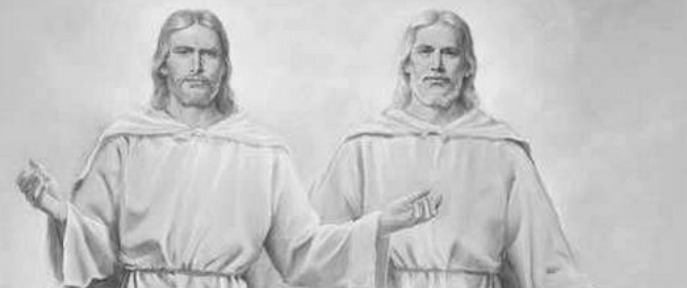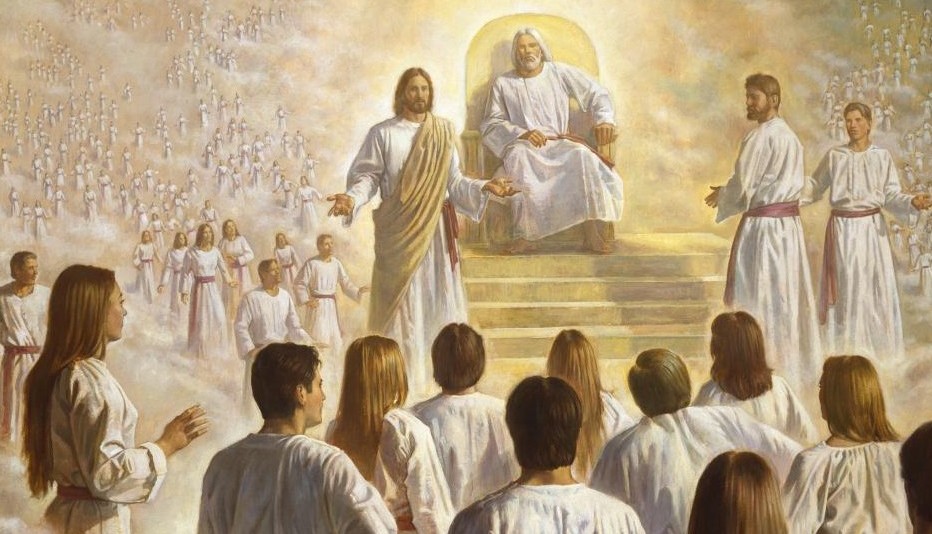Question
Dear Gramps,
My question is somewhat existential, somewhat theological, and purely speculative, I think. I believe in an existence prior to mortality—that individual “spirits” or “essences” (or whatever philosophical parlance you prefer) gathered knowledge and experience prior to their coming to earth. I have a friend in the Mormon church who believes the same thing; he even says that spirits were shown the life they would have on earth—trials, joys, and all—and that they chose to accept the course God had plotted for them. My question, then, is this: to what extent is such foreknowledge a negation of human agency? How can human beings rightly be said to have freedom of choice when, prior to their choices, they were shown the sum total of their future actions? Please enlighten me, oh high-flying, acrobatic one.
Dana
Answer
Dear Dana,
In the landscape of Christian theology, few topics spark as much debate and inquiry as the concepts of free agency and predestination. For members of The Church of Jesus Christ of Latter-day Saints, these principles are not merely abstract ideas; they form the very foundation of their understanding of salvation, accountability, and divine purpose. The notion of free agency—often referred to as moral agency—highlights the importance of individual choice in the plan of salvation. In contrast, predestination, commonly associated with certain traditional Christian doctrines, raises questions about the nature of God’s foreknowledge and human freedom.
In Latter-day Saint thought the term “moral agency” is preferred over “free agency” to emphasize the moral responsibility that accompanies the ability to choose. Doctrine and Covenants 101:78 states that moral agency is the divine gift that empowers individuals to make choices and be accountable for those choices. Elder D. Todd Christofferson articulated this idea, noting that moral agency is fundamentally about the ability to choose while being held accountable for the outcomes of those choices.
Latter-day Saints believe firmly that individuals are free to choose their actions but are not free to choose the consequences of those actions. This understanding is aligned with scriptural teachings, such as 2 Nephi 2:27, which proclaims that “men are free to choose liberty and eternal life, through the help of Jesus Christ,” emphasizing the duality of choice and consequence. The principles of agency underscore that individuals are responsible for their own sins and decisions, as highlighted in the Articles of Faith 2: “Men will be punished for their own sins, and not for Adam’s transgression.”
While Latter-day Saints embrace the concept of moral agency, they also recognize the idea of foreknowledge, which stands in contrast to the notion of predestination. In many traditional Christian teachings, predestination implies that God has predetermined the fate of individuals regarding salvation or damnation. However, Latter-day Saints reject this interpretation, affirming instead that while God possesses foreknowledge of our choices, He does not impose predestination upon us. As articulated by FAIR Latter-day Saints, God’s foreknowledge is an understanding of what choices individuals will make, rather than a decree that compels those choices.
The doctrine of foreordination, which pertains to God’s selection of certain spirits for specific roles based on their premortal choices, is a crucial aspect of this theology. It suggests that while God may know who will choose to follow Him, He does not force those decisions upon individuals. This view is supported by scriptures such as Romans 8:29, which states, “Whom he did foreknow, he also did predestinate,” indicating that God’s foreknowledge does not negate human agency.
Central to the Latter-day Saint belief system is the Atonement of Jesus Christ, which plays a pivotal role in the exercise of agency and the understanding of predestination. The Atonement provides the means through which individuals can repent and choose salvation, underscoring the importance of personal choice in accepting or rejecting this divine gift. Jesus Christ exemplified the ultimate exercise of agency by choosing to fulfill His divine mission for the benefit of all humanity.
This belief is reinforced by the understanding that Satan seeks to undermine human agency by tempting individuals to make choices that lead to spiritual bondage (Moses 4:3-4). In Latter-day Saint theology, preserving agency is essential to God’s plan of salvation, and the Atonement serves as the pathway through which individuals can exercise their agency to return to the presence of God.
In summary, Latter-day Saint theology upholds that free agency, or moral agency, is a divine gift that allows individuals to make choices leading to eternal life. While God possesses foreknowledge of those choices, He does not predetermine them, ensuring that agency remains a fundamental aspect of the human experience. The teachings of The Church of Jesus Christ of Latter-day Saints emphasize that each person is accountable for their decisions and that the Atonement of Jesus Christ is central to exercising agency. Understanding the relationship between free agency and predestination enriches the believer’s faith and highlights the importance of choice in the grand design of salvation.
Gramps






